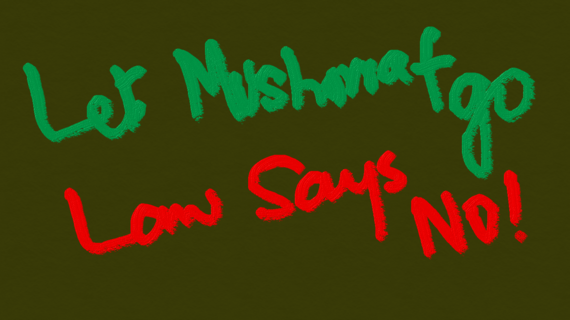Pakistani politicians are faltering in their resolve to prosecute General Pervez Musharraf for high treason. Under Article 6 of the Pakistan constitution, "any person who abrogates or subverts or suspends or holds in abeyance, or attempts or conspires to abrogate or subvert or suspend or hold in abeyance, the Constitution by use of force or show of force or by any other unconstitutional means shall be guilty of high treason." This far-reaching language was drafted to deter military generals from seizing power. In 1999, Musharraf did topple a democratically elected government. However, the treason case for which Musharraf is being prosecuted involves the 2007 subversion of the constitution -- a move directly assaulting the independence of judiciary.
In 2007, Musharraf did not overthrow a civilian government. This time Musharraf staged a coup against the Pakistan Supreme Court. By 2007, under an emerging lawyers' movement to restore democracy, the judiciary had been emboldened to stand up to the military generals. Fearing a non-cooperative Supreme Court, Musharraf found a way to remove the antagonistic judges. Invoking the non-existing powers of the Chief of Army Staff, Musharraf passed a new ordinance, prescribing a fresh Oath of Office for all Judges of the Supreme Court and High Courts. Many Judges refused to comply. Some Judges were not even invited to take the Oath. A few Judges of the Supreme Court, including the Chief Justice of Pakistan, were put under house arrest.
Nowhere does the constitution empower the Chief of Army Staff to demand a fresh Oath of Office from Judges of Superior Courts. This brazen constitutional subversion lies at the core of the high treason case against Musharraf.
Political Wisdom
The political elite of Pakistan are divided over the prosecution of General Musharraf. The party in power favors prosecution. Musharraf's name has been placed on the Exit Control List, which means that he cannot leave the country though he has been granted bail in all outstanding cases. While a listless prosecution is moving at a snail pace, some prominent politicians are speaking against the wisdom of prosecution. They prefer that the prosecution be halted and Musharraf be allowed to leave the country.
The pro-Musharraf forces make several pragmatic arguments. Two arguments carry the most traction. First, they argue that the military establishment opposes the Musharraf prosecution. Therefore, antagonizing the generals does not serve the larger interests of Pakistan, particularly at a time when the military is fighting in North Waziristan. Second, they argue that the government should focus on solving more pressing problems, including poverty and shortage of energy, rather than wasting time and resources on prosecution. The party in power is losing steam in making a strong case for the finality of prosecution, and pro-Musharraf forces seem to be gaining momentum.
Law's Wisdom
It is unclear how Pakistani lawyers and judges feel about letting Musharraf go. Lawyers need to be more vocal in expressing their views. After all, the 2007 constitutional subversion was not against politicians or elections; it was against Judges and the rule of law. Musharraf invoked arbitrary powers to dismiss and detain Judges, not politicians. Lawyers know that a nation without an independent judiciary lacks stability and eventually fails. That is why the independence of judiciary is a core principle of contemporary human civilization regardless of culture, religion, political system, and form of government. When judges are at the mercy of rulers, law is no longer a vital force.
While politics is the name of compromise, law is much more complex. Surely, law allows negotiated solution, mediation, conciliation, and settlement of disputes. Relentless compromising, however, is not the wisdom of law. Law needs to be sturdy in select cases. For example, the perpetrators of torture, rape, and genocide cannot be allowed to settle their crimes. The society has a stake in the prosecution of certain crimes even if the victims are willing to forgive and forget.
The Pakistan constitution rightfully identifies constitutional subversion as high treason. Arbitrary dismissal and detention of the Judges of Superior Courts is unforgivable. The treason case is showing the nation that law can reach the high and the mighty. Any political compromise that weakens the sturdy hand of law and finds a way for Musharraf to escape the charges of constitutional subversion will be a regrettable choice. The Pakistan Supreme Court needs to be vigilant in making certain that the law is not compromised.

